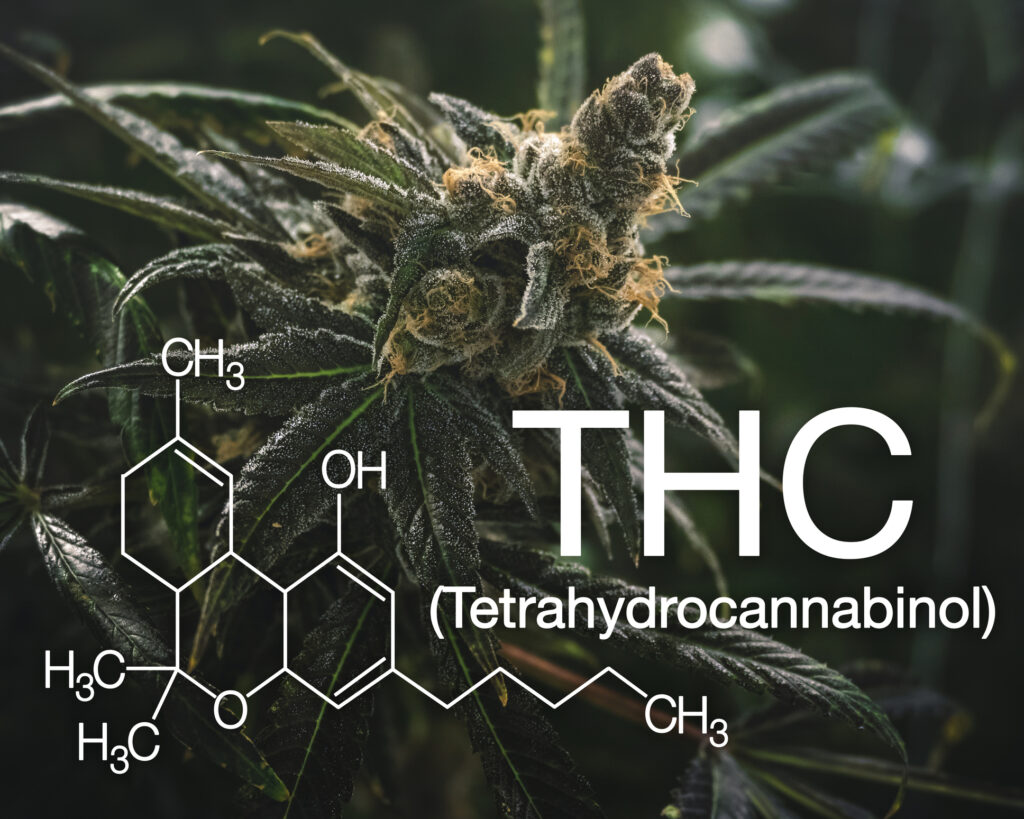Unlocking the Health Potential of THC


 The Cannabis sativa plant produces different chemicals that might play a role in improving your health. Three of these chemicals stand out for their possible medical uses: terpenes, flavonoids, and cannabinoids. The two cannabinoids that scientists have studied the most are delta-9-tetrahydrocannabinol (THC) and cannabidiol (CBD) for health and beauty benefits. Unlike THC, the psychoactive component of cannabis, CBD doesn’t get you “high.” It’s become increasingly popular as a natural remedy for various health and wellness concerns. For more information on CBD, check out this article.
The Cannabis sativa plant produces different chemicals that might play a role in improving your health. Three of these chemicals stand out for their possible medical uses: terpenes, flavonoids, and cannabinoids. The two cannabinoids that scientists have studied the most are delta-9-tetrahydrocannabinol (THC) and cannabidiol (CBD) for health and beauty benefits. Unlike THC, the psychoactive component of cannabis, CBD doesn’t get you “high.” It’s become increasingly popular as a natural remedy for various health and wellness concerns. For more information on CBD, check out this article.
THC is the more psychoactive — and perhaps controversial — compound, but it has been used around the world since ancient times, and evidence supports its uses. While many people are interested in using THC for medical reasons, the organization in charge of approving medications in the United States (the U.S. Food and Drug Administration (FDA)) has said it needs more research to understand its potential benefits and side effects. Let’s explore the potential therapeutic applications of THC:
Anxiety
Research on the potential benefits of THC for anxiety is inconclusive and often contradictory. Some studies suggest low doses might temporarily ease anxiety symptoms, while others show it can make anxiety worse, especially with chronic or high-dose use. THC interacts with the endocannabinoid system, a system in the body that affects mood. Still, the effect varies from person to person based on their genes, personality, and past experiences. More research is needed to understand how THC truly affects anxiety both short and long-term for different people and in what forms and doses.
 Insomnia
Insomnia
Some studies suggest that THC can help people fall asleep faster and sleep more deeply possibly because THC interacts with the endocannabinoid system, which also regulates the body’s natural sleep system. However, other studies raise concerns about potential drawbacks. For example, THC can disrupt REM sleep, which is important for memory and emotional processing. Studies have shown that long-term use of THC could lead to tolerance and dependence, meaning that people may need more and more THC to achieve the same sleep-promoting effects, making it difficult to fall asleep without THC. More research is needed to determine the optimal dosage of THC for sleep and to understand its long-term effects and how it affects individuals based on many biological factors.
 Chronic Pain
Chronic Pain
THC’s most common use in the U.S. is for chronic pain management. While not generally powerful enough for severe pain, studies show that for many people, it effectively alleviates chronic pain. Studies suggest that THC can relieve pain caused by nerve damage, neuropathic pain, and muscle spasms. Some research indicates THC may also be helpful for pain associated with arthritis, cancer, and inflammatory conditions.
THC’s appeal for pain lies in its safety profile: generally non-addictive, unlikely to overdose on, and a potential alternative to NSAID medications (like ibuprofen, etc.). Patients often report THC allows them to manage pain without feeling disengaged or overly sedated, allowing them to resume their daily activities. More research is needed to determine the optimal dosage and delivery methods for managing chronic pain with THC, but this is an area of exciting potential benefit.
 Chemotherapy-induced Nausea and Vomiting
Chemotherapy-induced Nausea and Vomiting
For decades, doctors have used two synthetic medications containing THC — nabilone and dronabinol — to help patients with nausea and vomiting caused by chemotherapy during cancer treatment. These medications have proven effective in clinical research trials, working just as well as other anti-nausea medications and better than a placebo. Combining THC with CBD might be even more effective for this condition than using THC alone. Even though some patients report that THC helps with chemotherapy-induced nausea and vomiting, there haven’t been enough high-quality studies to confirm this, and it’s going to be very important to talk to your medical team if it’s right for you to use before trying it.
 More Potential Health Benefits of Cannabis
More Potential Health Benefits of Cannabis
While the focus of cannabis research has often been on its potential for treating specific medical conditions, emerging evidence suggests a wider range of potential health benefits. Beyond its established use in managing anxiety, insomnia, pain, and nausea, cannabis may offer promising outcomes for various other health  concerns. Other exciting possibilities highlight the potential of this complex plant to improve overall health and well-being:
concerns. Other exciting possibilities highlight the potential of this complex plant to improve overall health and well-being:
• Dementia
• Depression
• Endometriosis
• Fibromyalgia
• IBS
• Interstitial cystitis
• Multiple sclerosis
• Parkinson’s Disease
• PTSD
• Sleep disorders
 Side Effects and Safety Considerations
Side Effects and Safety Considerations
While THC holds promise for certain medical conditions, potential risks and safety concerns should not be overlooked. Cannabis use may increase risks of respiratory complications, vehicle accidents, and cannabis-use disorder, especially for adolescents and people using high-THC products. Carefully considering individual factors, dosage, method of use, and THC content is crucial before using.
We still don’t know for sure how THC will affect healthcare in the future, but it looks like it could be helpful as well as carry some risks – like many medications and supplements widely used. Scientists need to do more research to figure out exactly how THC works in the body and how it affects people differently. This will help us make sure that people use THC safely and get the most benefit from it.
Resources:
Ng T, Gupta V, Keshock MC. Tetrahydrocannabinol (THC) In: StatPearls [Internet]. Treasure Island (FL): StatPearls Publishing; 2023 Jan. [Updated 2023 Nov 12]. https://www.ncbi.nlm.nih.gov/books/NBK563174/
National Academies of Sciences, Engineering, and Medicine; Health and Medicine Division; Board on Population Health and Public Health Practice; Committee on the Health Effects of Marijuana: An Evidence Review and Research Agenda. The Health Effects of Cannabis and Cannabinoids: The Current State of Evidence and Recommendations for Research. Washington (DC): National Academies Press (US); 2017 Jan 12. 4, Therapeutic Effects of Cannabis and Cannabinoids. Available from: https://www.ncbi.nlm.nih.gov/books/NBK425767/
Ward SJ, Lichtman AH, Piomelli D, et al. Cannabinoids and Cancer Chemotherapy-Associated Adverse Effects. J Natl Cancer Inst Monogr. 2021;2021(58):78-85.
Azcarate PM, Zhang AJ, Keyhani S, et al. Medical Reasons for Marijuana Use, Forms of Use, and Patient Perception of Physician Attitudes Among the US Population. J Gen Intern Med. 2020;35(7):1979-1986.
Grinspoon, P. Harvard Health Blog. Medical Marijuana. Published April 10, 2020. https://www.health.harvard.edu/blog/medical-marijuana-2018011513085